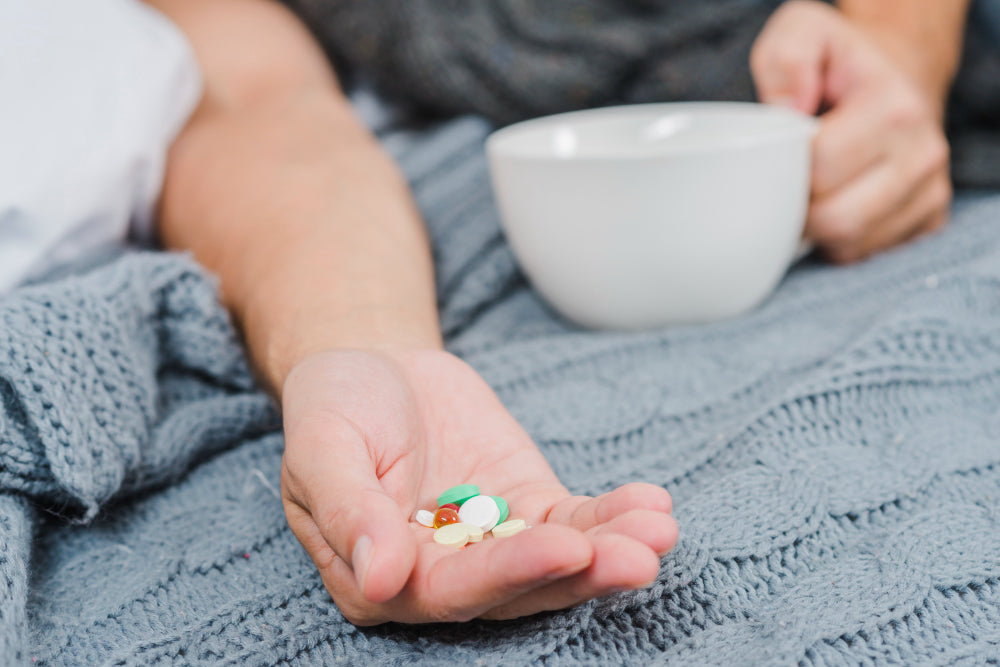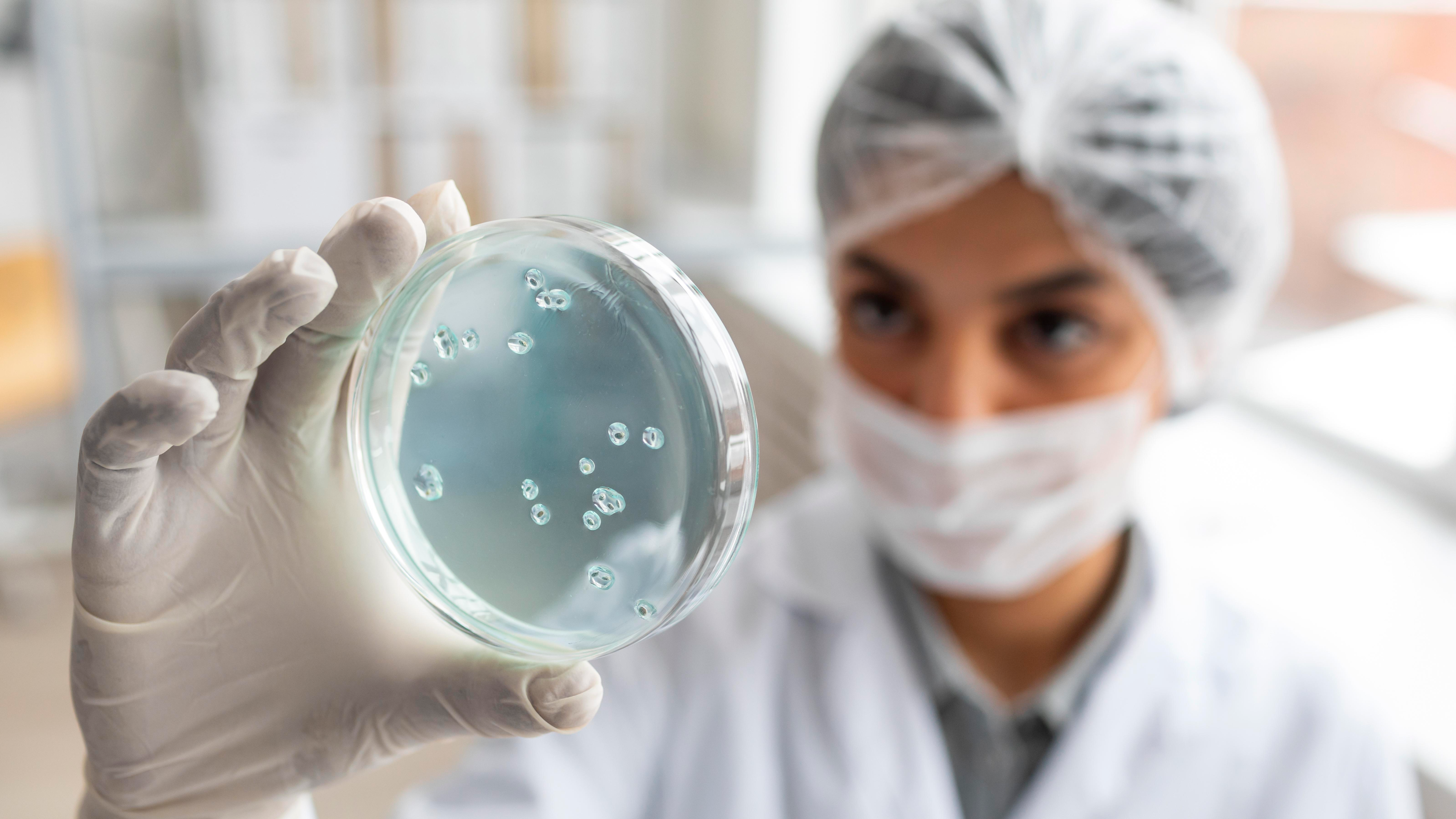What is an antibiotic for chlamydia?


Chlamydia is one of the sexually transmitted diseases (STDs) that occurs most frequently and can be acquired through oral, anal, or vaginal sex.
Because chlamydia rarely causes symptoms, most individuals who have it are unaware of it until it damages their sexual health. One of the most prevalent STIs in the UK is chlamydia. It is found mainly in sexually-mature teenagers as well as young adults. It is transmitted through unprotected intercourse (unprotected sex) that takes place without the use of a condom or another barrier contraceptive.

Chlamydia is a sexually transmitted infection (STI) caused by the bacterium Chlamydia trachomatis, known as C. trachomatis. Once infected, a person can transmit chlamydia to subsequent partners via intercourse, anal sex, or oral sex. Infections can also arise whenever partners share sex items which have become infected with the chlamydia germs during sexual contact.
Read more: Everything you need to know about a chlamydia infection.
The first-line treatment for chlamydia is antibiotics. The following are the most typical antibiotics often used for chlamydia treatment:
Azithromycin: Often ingested in a single dose to cure chlamydia
Doxycycline: Typically taken throughout the week.
Although if your symptoms become better, stick to the antibiotics your doctor has recommended and take the other drugs until they are completely gone.
The most popular drug used for chlamydia treatment is an antibiotic called doxycycline, which has successfully treated this condition. It may result in minor adverse effects, like most medications. The label of this drug is a tetracycline antibiotic. It acts by preventing bacterial development. This antibiotic only treats bacterial infections.
The recommended dosage for taking antibiotics correctly is 1 or 2 times every day by mouth, usually with an empty stomach, by approximately 1 hour beforehand or 2 hours after a meal, or as prescribed by your doctor. After taking doxycycline, allow a minimum of 10 minutes before lying down. Use this medication two to three hours prior to or after consuming any items containing bismuth subsalicylate, aluminium, calcium, zinc, magnesium, or iron.
The adverse effects of Doxycycline that occur most frequently are discomfort, vomiting, abdominal discomfort, loss of appetite, moderate diarrhoea, skin rash as well as itching, changes in skin colour, and vaginal tingling or discharge.
These side effects ought to disappear once you stop taking the medication. Before using Doxycycline, discuss any medications you're currently taking and any existing health problems with your doctor. Taking even the best antibiotics without any infection may develop a high risk of antibiotic resistance in future.
Read more: Doxycycline and alcohol.
Another antibiotic that battles bacteria is azithromycin. Numerous bacterial illnesses, including those of the respiratory system, skin, ear, and eye, as well as other sexually transmitted infections, are treated with azithromycin.
If you experience any of the following symptoms of an allergic response to azithromycin: hives, trouble breathing, swelling of the face or throat; or a serious skin reaction, including fever, dry mouth, burning in the eyes, skin pain, and a red or purple skin infection that spreads and blisters and peels, you should seek emergency medical attention.
Get medical attention if you suffer a severe medication reaction that can have a wide-ranging impact on your body. Affected skin, fever, swollen lymph nodes, flu-like signs, muscle aches, extreme weakness, unusual bruises, or yellowing of the skin or eyes are just a few signs that may appear after a few weeks of using azithromycin.
Also, avoid sexual contact for around a week, or until you and your sexual partner both have completed treatment, to prevent the infection from spreading. The course of antibiotics must be completed to avoid re-infection.
Your doctor might use one of the many procedures available to test your urine or cervical and penile discharge if you think you might have chlamydia. The cure rate for chlamydia is 95% in the majority of instances.
Even if they don't have symptoms, sexually active women under the age of 25 and those who are at higher risk must be tested for chlamydia every year during their yearly pelvic exam because many women don't discover they have had the disease until they have caused serious complications like pelvic inflammatory disease. In addition to the usual lab tests, expectant mothers should also undergo testing. Sexually transmitted infections require regular screening.
Read more: How do I know if I have chlamydia?
Chlamydia treatment is typically simple after it has been diagnosed. To treat the infection, your healthcare provider will prescribe you some antibiotics. Sometimes one of these antibiotics only requires one dose. A further seven-day chlamydia treatment is available.
After it has been diagnosed, the optimal course of treatment for you will be determined by your doctor. The medication should stop the infection, but it won't reverse any long-term effects of the sickness. After obtaining treatment, if a patient's symptoms persist for some more longer than a few days, they should visit a doctor for a new evaluation.
Chlamydia infection recurrence is typical. Untreated sex partners can give others, especially women, a significant chance of catching the virus once more.
A woman is more likely to experience major reproductive health issues, such as pelvic inflammation and ectopic pregnancy, if she has multiple chlamydial infections. Irrespective of whether they think respective sex partners were properly treated, people infected with chlamydia should be retested three months after the original infection.
Ensure that your sexual partners also are made aware of your chlamydia infection in case they also need treatment. Otherwise, you risk spreading the sickness to other people or to additional people repeatedly during sexual contact. Your doctor may occasionally prescribe medication for you as well as your companion.
Chlamydia is prevalent and typically doesn't show any symptoms, but if it isn't identified and treated immediately, it can cause major problems.
If untreated chlamydia is left for quite a long time, it may develop into the female uterus or fallopian tubes. You may get pelvic inflammatory disease (PID) as a result of this. PID can potentially harm the body permanently, resulting in discomfort, infertility, and pregnancy issues. Therefore, obtaining frequent chlamydia screenings significantly reduces your risk of developing PID, monitor your sexual health and aids in disease control.
If left untreated, a chlamydia infection in your penis can progress to your epididymis, the tube that transports sperm from your testicles, and lead to chronic joint pain. It may sporadically render you infertile. Chlamydia may make you more likely to reactive arthritis and contract or spread HIV.
Chlamydia can be transmitted to your unborn child if you have it while pregnant and leave it untreated. Chlamydia raises the risk of premature delivery and can also result in eye problems and pneumonia in babies.
Women who have significant infections, including pelvic inflammatory disease, might need to take antibiotics for longer or stay in the hospital to receive intravenous antibiotics. Surgery may be required in addition to antibiotic therapy for some severe pelvic infections. Infants infected with this condition can also develop growth problems.
Read more: Can you get chlamydia from kissing?
Antibiotics are a simple remedy for chlamydia, which is a sexually transmitted disease. You must also ensure you are safe with your sexual partners and keep each other informed; otherwise, it can endanger your sexual health. Chlamydia can cause significant issues if it is not treated.
Find treatment and antibiotics for chlamydia at Welzo. Visit our Chlamydia information page to learn more.
Or, order a Chlamydia, or All-in-One STI at-home testing kit.










Plus get the inside scoop on our latest content and updates in our monthly newsletter.